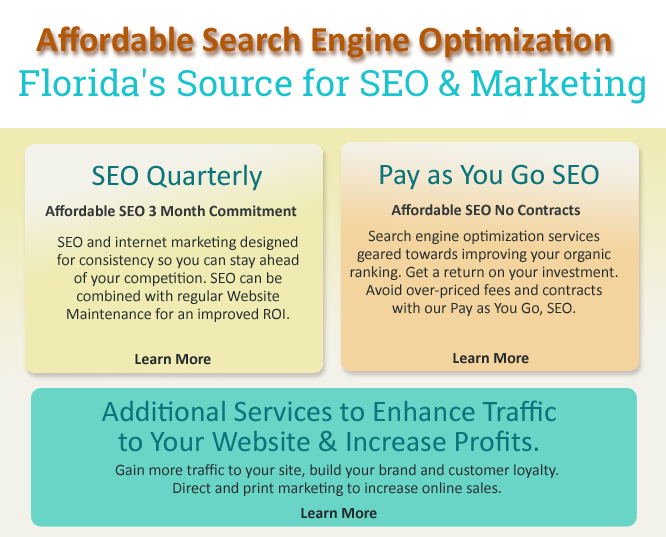Affordable Search Engine
Optimization & Marketing, No Contracts, Pay as You
Go.
| |||||||
 |
|
||||||
Search Engine Optimization Defined |
How Google Has Changed |
But, Is the Phone Ringing? |
Affordable SEO For Consistent Marketing |
Sick of Being Social? |
SEO Services That Won't Keep You Hanging |
|
Meta Tags, Descriptions, Metadata
& Search Engine Optimization Services
|
|
|
Improve Ranking and Usability With Proper Internal Link Building Practices.  |
Types of Metadata Used
|
information regarding SEO...
But you probably didn't come here to learn.
|
Many Tampa and Florida small biz owners fully understand the basics of web design and optimization. We provide some instruction and definitions but our purpose is to provide you with a whole bunch of actual SEO and marketing services that will save you time and money. |
Modifications of Meta Tags
We Can do That.

| Search Engine
Optimization - Time consuming process of marketing your
website to obtain a higher ranking on the search engines with
Google, Bing & Yahoo being the key players. Website Marketing - Marketing your website should not be limited to search engine optimization. Social media marketing to drive traffic and show relevance is a must, but traditional marketing is also called for. We can do that and you make one call. |
|
Bay Area Graphics & Marketing
Bay Area Graphics & Marketing




